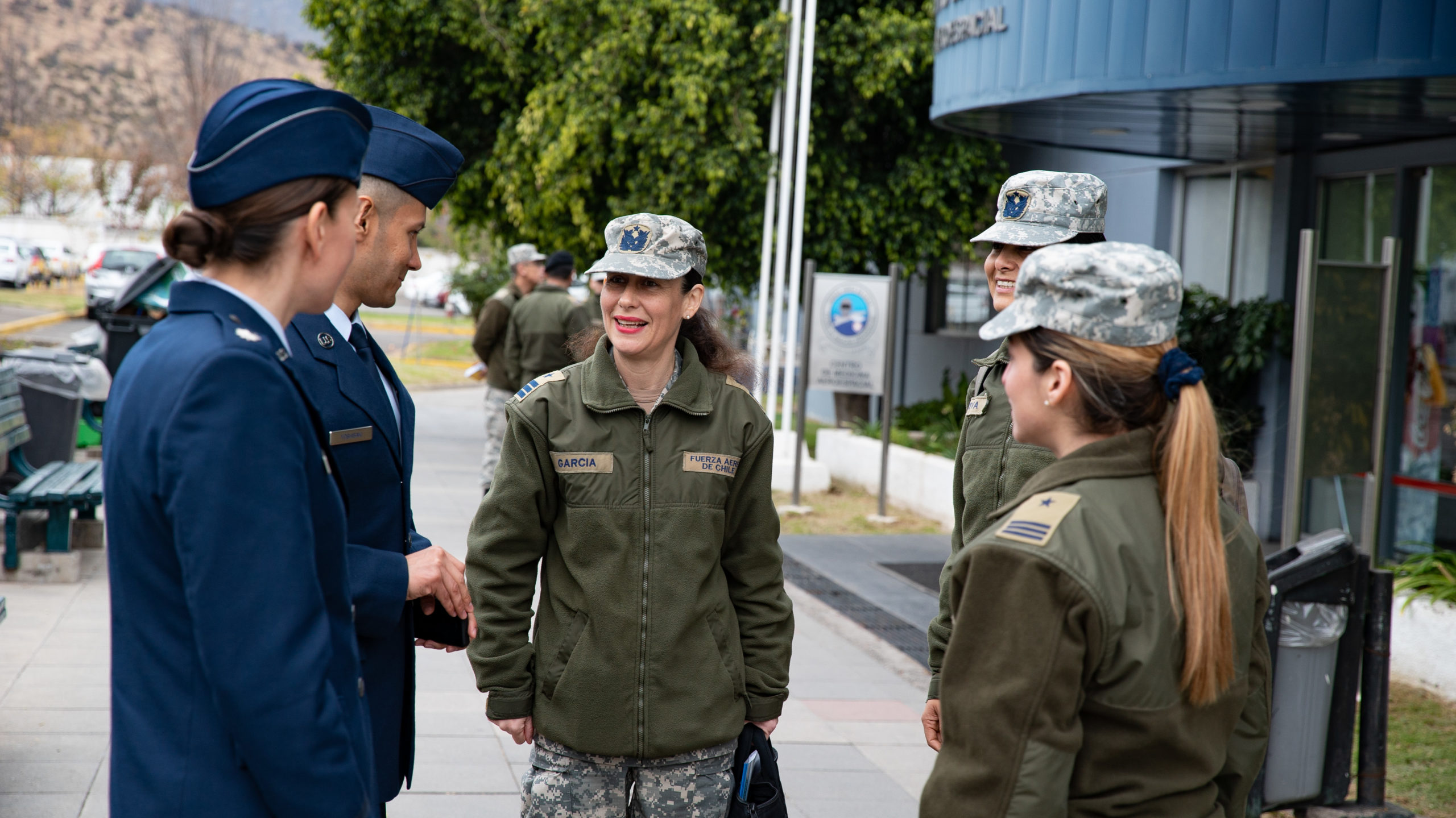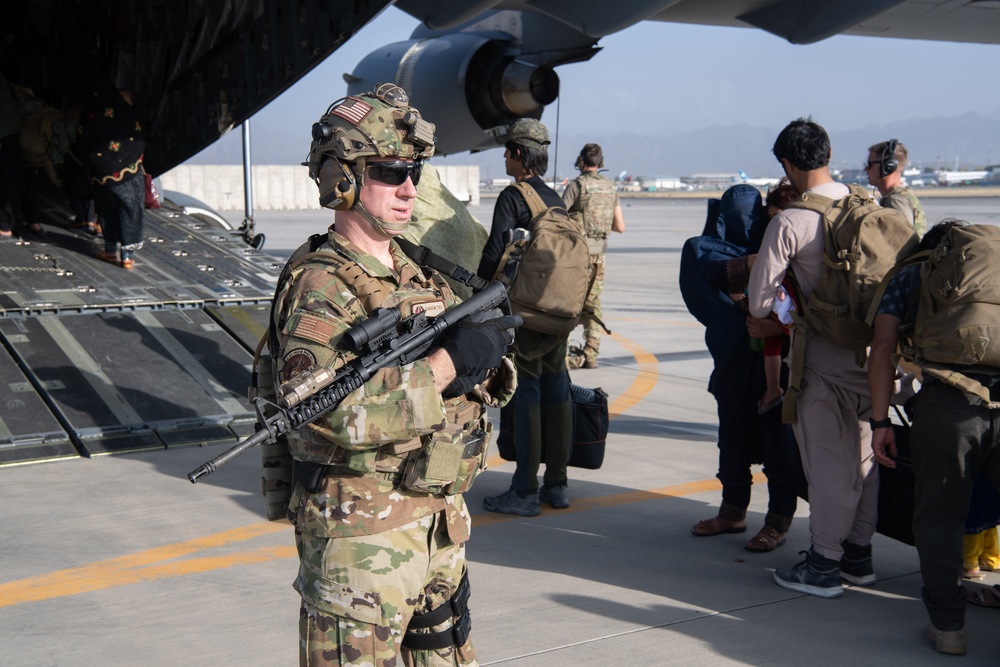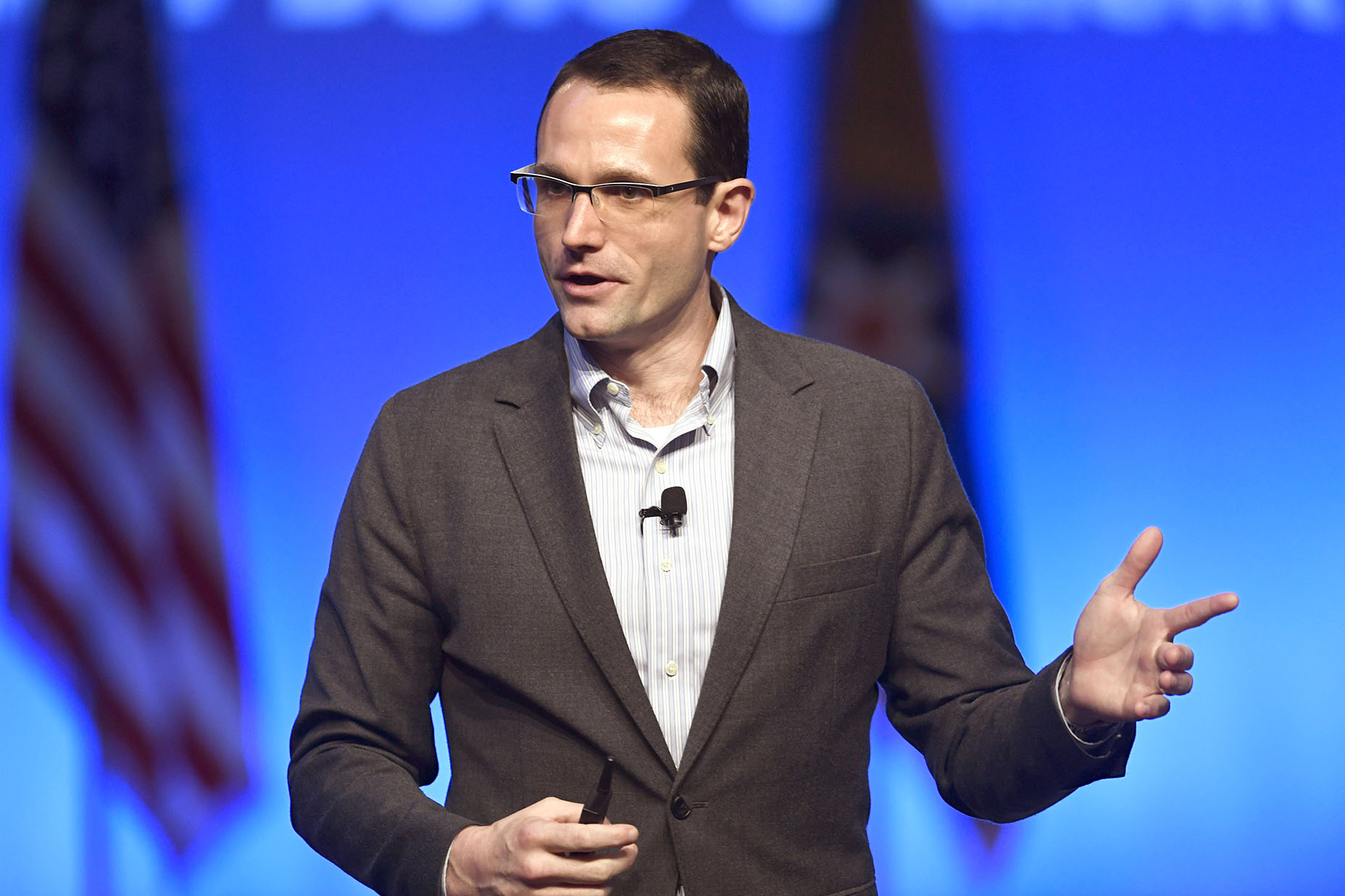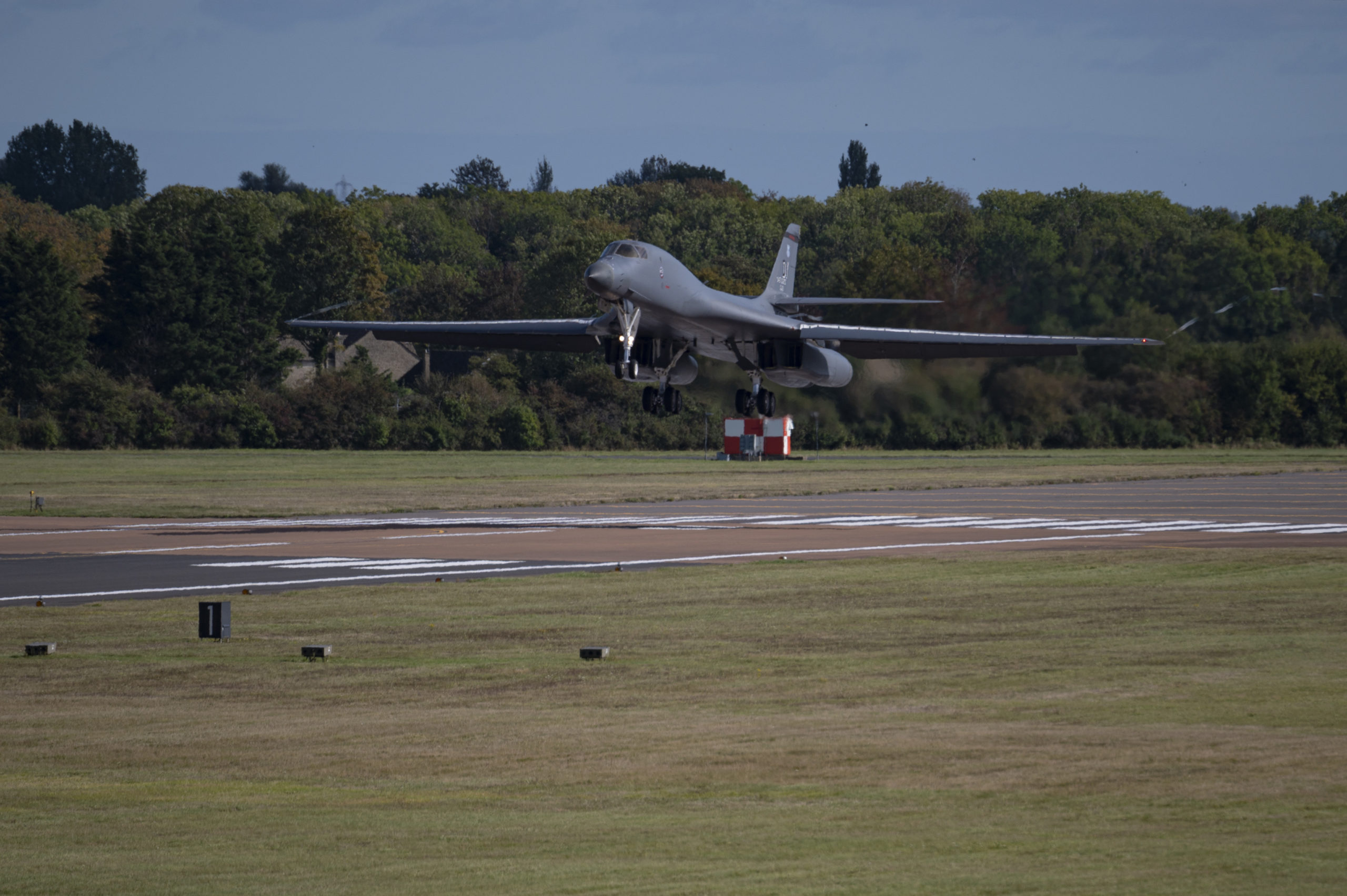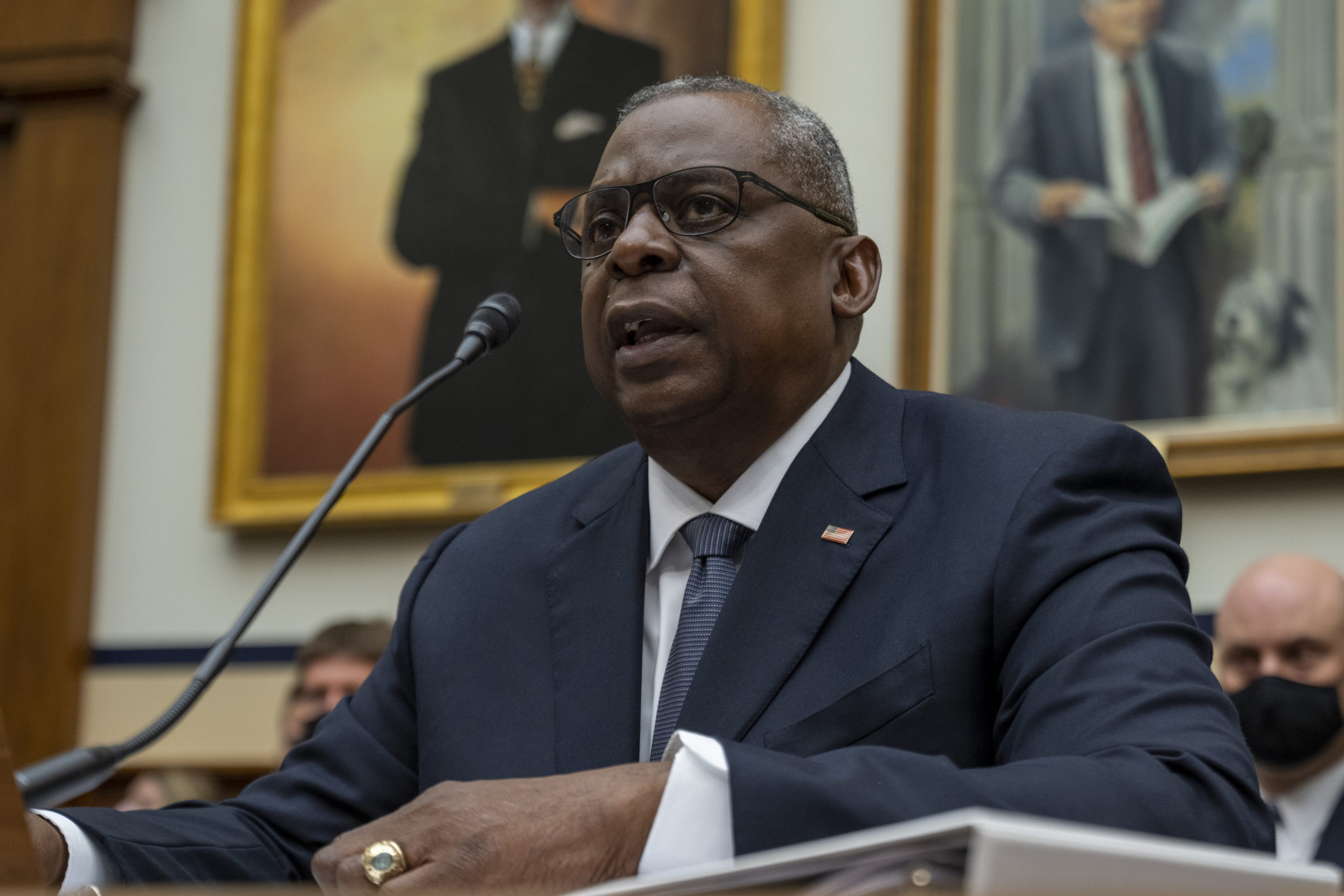First came the eight online courses with native Arabic speakers. Then the three in-country immersion programs, each three weeks long. But the street hockey game with teenagers in Oman, followed by a beach cookout, were what helped Air Force Maj. Austin Pickrell realize the cultural intangibles that strengthen ties with partner nations.
Pickrell, 33, told Air Force Magazine that the Language Enabled Airmen Program “has been a real pillar within my Air Force career.” He’d even consider it “a retention tool,” he said by phone from Ramstein Air Base, Germany, where he is a regional desk officer for U.S. Air Forces Africa.
His local language instructors in Oman had to up their games—not unlike Pickrell had to do playing street hockey with teens—because he and his LEAP colleagues were already ahead of the curve.
“They made a super advanced course, which was kind of cool, and they had to make it on the fly,” Pickrell recalled. “And they gave us a lot of really tailored experience and knowledge,” he said, noting how cultural experiences such as sharing a traditional coffee service can help him to connect with partner nations’ militaries.
“Basically, it was a great time,” he said. “The opportunity to use Air Force time, and Air Force resources, and training that the Air Force has paid for, to improve and grow my language skills while doing my day job, and to travel if there’s the opportunity, has been a major draw.”
The LEAP Scholars program falls under the Air Force Culture and Language Center (AFCLC) at Maxwell Air Force Base, Ala. It is not a foundational language program but one that recruits and accepts volunteer Airmen who already have a foundation in a particular language and want to retain and strengthen that language. They do not attend in-person sessions.
“LEAP is a program that started over a decade ago, recognizing, particularly from back in the middle 2000s, that the strategy for breaking the insurgency wasn’t working,” said Howard Ward, director of AFCLC.
“The ability to work with different cultures, cross-cultural communication, intercultural competence was going to be the key,” Ward explained. “I think I heard the quote once, ‘You can speak three languages and be a jerk in all of them.’ So, it’s important that we develop language and intercultural skills concurrently.”
When Pickrell was in high school, he recalls toiling away with the Rosetta Stone Arabic software on his computer. He had started learning Arabic because an ROTC instructor at Ohio State University said the Air Force needed recruits with foreign language skills, especially the hard ones such as Arabic.
“I knew I really wanted to travel a lot, and I knew that Arabic was spoken in a lot of countries,” he said.
It’s about more than the travel opportunities, though, Ward said. Language abilities provide a strategic advantage to better understanding America’s adversaries. Fully one-quarter of the LEAP program participants—some 3,200 Airmen and Guardians—are clustered in the languages of Chinese, Korean, Farsi, Arabic, and Russian.

“Our overall mission in the center is partner interoperability and adversary understanding: their language, region, and culture,” Ward said—”to grow folks that are better capable of having dialogue with them, so that we can hopefully compete and not go to conflict,” he added. “But also to help us find the intentions that are quite often hiding in plain sight with indirect ways of speaking a highly contextual language.”
The LEAP program is an online platform that connects participants 24 hours a day, and best of all, it’s not boring, its users say.
“You’re working with live instructors, where you’re getting feedback, you’re getting interaction with anywhere from one to four more students,” Ward said.
Pickrell sings the program’s praises.
“I’ve been really fortunate in my courses because mine have been amazing,” he said. “They have forced me to get better, like I can feel my pronunciation and my speed go faster, like you’re pushing on an accelerator in a car.”
That accelerator has advanced his career, too, giving Pickrell the opportunity to engage with high-level military officials worldwide. As a desk officer, Pickrell reaches out to the U.S. security assistance offices of Arabic-speaking countries in Africa to help them strengthen partner capacity.
“I actually translated for an Air Force one-star and two North African military officers in Arabic, and it was one of the best experiences I’ve had,” Pickrell said.
He is also regularly contacted to translate documents into Arabic, and he has helped inform operations plans.
Even enlisted Airmen and Guardians in the program are tapped for high-level responsibilities and positions thanks to their specialized language skills.
Senior Master Sgt. Diego Yoshisaki, a theater security cooperation manager for the 1st Air Force at Tyndall Air Force Base, Fla., served a one-year tour as the U.S. Air Force liaison to the Portuguese Air Force at Lajes Field in the Azores Islands in the North Atlantic.
“Anything and everything dealing with the U.S. and the Portuguese, it came from our office,” said Yoshisaki, a native Spanish speaker from Bolivia who underwent a month of immersion training in Rio de Janeiro to learn the related language of Portuguese.
“It is a high-paced environment, but nonetheless very rewarding,” he said of his work in the Azores. “You’re not just learning how to say certain words in a different language, but you’re really adapting yourself to the cultural level of understanding for that region.”
At Lajes, that meant getting a document signed by the base commander first required a “café da manhã,” a midmorning coffee and chat with a staffer.
“You just go down, drink some espresso, and really talk about daily life and eventually say, ‘Hey, by the way, I sent the paperwork,’” he said.
In Portugal, Yoshisaki regularly engaged with senior officers and the U.S. ambassador in Lisbon. Now fluent in both Spanish and Portuguese with a proficient military vocabulary, Yoshisaki is tapped for senior-level engagement with partners in the Western Hemisphere.
In September, Yoshisaki joined other LEAP Scholars to help support key leader engagement at the Central American Air Chiefs Conference along with the Mexican Air Force chief at Davis-Monthan Air Force Base, Ariz. To his surprise, when a foreign affairs officer was not available, he was tapped to serve as translator for a high-level meeting between 12th Air Force Commander Maj. Gen. Barry Cornish and commander of the Mexican Air Force, Gen. José Gerardo Vega Rivera.
“When you have a general officer, a U.S. general officer, talking about certain items, you have to be able to communicate the message the way it was intended,” Yoshisaki said.
“It was stressful, because other nations will look at the stripes and not the rank on your shoulders, just between enlisted and officer. But once you present yourself … professionally, then they really understand, ‘This person knows what they’re talking about,’” he said. “It shows the care and also the intentional and deliberate engagement that the U.S. Air Force is [using] to deal with partner nations when you assign a language-enabled airman.”
